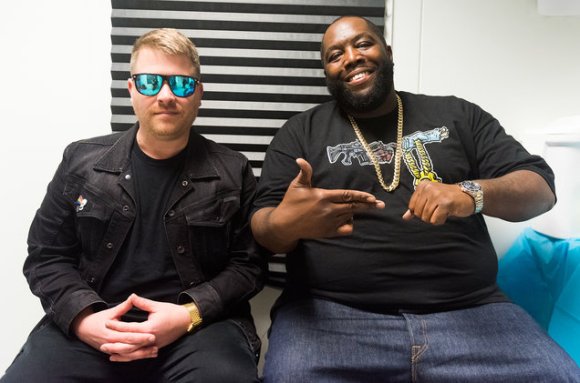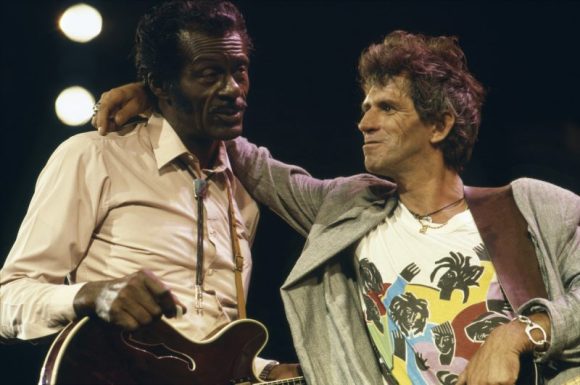This post is part of a series of daily blog posts written during the month of May as a form of artistic protest. This Blog March was organized by writer/musician Robin Renée. You can learn more about Robin and the Blog March by visiting her website.
A few years ago, I had a co-worker who was really into music. When he found out that I enjoyed many of the classic rock bands that he liked, he’d come by my desk to have long, meandering conversations about music. One day he and I were discussing Hendrix, and he said that he didn’t like Jimi Hendrix and thought he was overrated. I told him that I tended to agree, that the cult of personality surrounding Hendrix had gotten a bit out-of-hand. Then in another conversation, we were having about guitarists we thought were overlooked, I suggested Prince and his reaction was one of disgust. “Prince? Prince? Surely you are joking…” I thought that was an odd reaction for such a big music fan to have, but I didn’t think too much about it. Then there was the time the subject of blues music came up, and he emphatically told me that he couldn’t stand it and that it held little artistic merit (or some such thing). I thought that was a pretty odd perspective to have, especially considering his favorite band was The Rolling Stones. I called him out on this, and he shrugged me off.
Imagine my surprise, however, when his hero Keith Richards released an album of all blues covers. There was no way that this guy was going to like that, right? Wrong, he loved it. I called him out on his inconsistent stance on blues. Then I asked him if he listened to any music made by a black artist and he told me frankly: “I don’t listen to black music…it just doesn’t speak to me. I can’t relate to it at all.” I laughed, not because the statement was funny (though it was) but because I thought this guy was joking. He was not. It turned out this guy avoided “black music” and only listened to bands/singers who were white, like him. Now, whether or not this guy was racists is neither here nor there–the point is, I think it’s pretty common for people to enjoy music made by people who most resemble themselves. As I’ve said many times, I didn’t seriously listen to female bands/singers until I was in my early 20’s when radio host/E-Street Band member Little Steve told me that Tegan & Sara were “cool.”
Now, if you think about it, it doesn’t make sense for this guy to think he has more in common with Keith Richards than he does with someone like Robert Johnson. This guy was a teacher so economically, Johnson and his day-to-day life were much more “relatable” than Richards (who is a millionaire-vampire).
As I’ve matured and expanded my sphere of listening, I’ve come to realize how valuable it is to hear music created by people vastly different from myself. About a year or so ago, I was listening to a rap song, I wish I could remember what song or who the artist was (I think it was Run The Jewels), but I remember taking my headphones off and thinking: Oh, my God…”Black Lives Matter” means “All Lives Matter.” I had never taken issue with the sentiment of BLM, but like a lot of middle-class white people, I also thought it should be “All Lives Matter.” But through exploring both classic and modern rap/hip-hop, it became apparent to me that the way I experienced the world was fundamentally different than the way people of color experience it. Listening to rap provided a window of insight into how other people see and feel about things. I no longer have a problem with “Black Lives Matter,” because I can see now how they currently don’t matter (in this country and elsewhere in the world) and it was music that allowed me to begin the process of understanding. And right now what the world needs more than anything right now is more understanding.

Run the Jewels.
100+ days ago, I would say this revelation would be pretty important, but now in May of 2017, I think it’s probably the most important thing music is. No matter who you are, take the time to explore the art of people who are different from you. Art is where we exalt our joy and preserve our pain. That old saying about not knowing someone until you walk a mile in their shoes? Well, one way you can do that is to experience their films, books, and music. I love Keith Richards to death, but it blows my mind that a person could enjoy his work and have zero interest in his mentor Chuck Berry. Don’t you dare be that narrowminded.

The master and the apprentice.
Our Hater-In-Chief and those like him can only see divisions, but the truth is that our world is overflowing with art that can link us together. We’re all floating islands of isolation, but art tethers us not just to this world but to one another. Stop reading this post and listen to music made by someone who doesn’t look like you.
And if you want a suggestion:
Check out the next Blog March blog, by David Jamison here: https://davidjamison.wordpress.com/
[…] We will be broadcasting voices throughout the month of May. The previous blog marcher was Jason Wendleton at Defending Axl Rose on May 8, and the next blog marcher will be Rorie Kelly at GoGirlsMusic.com on May 10. I am […]
Thank you so much for approaching this conversation. The expectations regarding what you should look like in order to make or listen to various music genres has been a real frustration for me personally and professionally. I have to say though, I think it is incredibly important not to gloss over what is really central: Is avoiding music made by black people because it doesn’t “speak to you” racist? Absolutely. This type of assumption and behavior is a very good example of one kind of result based on racism in our culture. It doesn’t have to be a personal attack on an individual you were speaking with to call it what it is. I believe we are all steeped in a racist system. Talking about it and noticing it is a huge step toward taking away the power that keeps it intact. Any opportunity that you have to point out bias you see in someone’s thinking, and to notice it within yourself, is a step in the right direction. It is encouraging to hear that your appetite for experiencing all types of music led you to hear perspectives you hadn’t heard before, and to gain understanding as to why people need to remind society that #BlackLivesMatter.
I am sad to say that in my young teenage years I was caught up in the black/white division of music, which I believe was very much crafted by the music industry and then perpetuated by fans. At the time, I was a huge fan of classic rock, then New Wave. I was made fun of a lot for being into “white music,” and I believed that lie. For a long time I really believed that I had to choose – and since I liked “white music,” I ignored so much great music, and really, part of my own identity. Many years later, I still find it healing to go back and listen to P-Funk, Sly & the Family Stone, James Brown and so much more, reclaiming the expansive self that I am, able to appreciate music beyond lines of color.
It makes me angry that I got caught in believing in the racist division of music. I think it hurt me creatively, not to mention the psychic damage of feeling somehow defective for liking the “wrong” music and being closed off to so much music as well. I have tried to explain the emotional crisis and damage done by the whole rock vs. disco battle of the late 70s and wound up feeling like I sound frivolous worrying about such a thing. Thank you for bringing a very real issue to light.
Man, this was really good, and wise. Please more people have the revelations you easily glided into